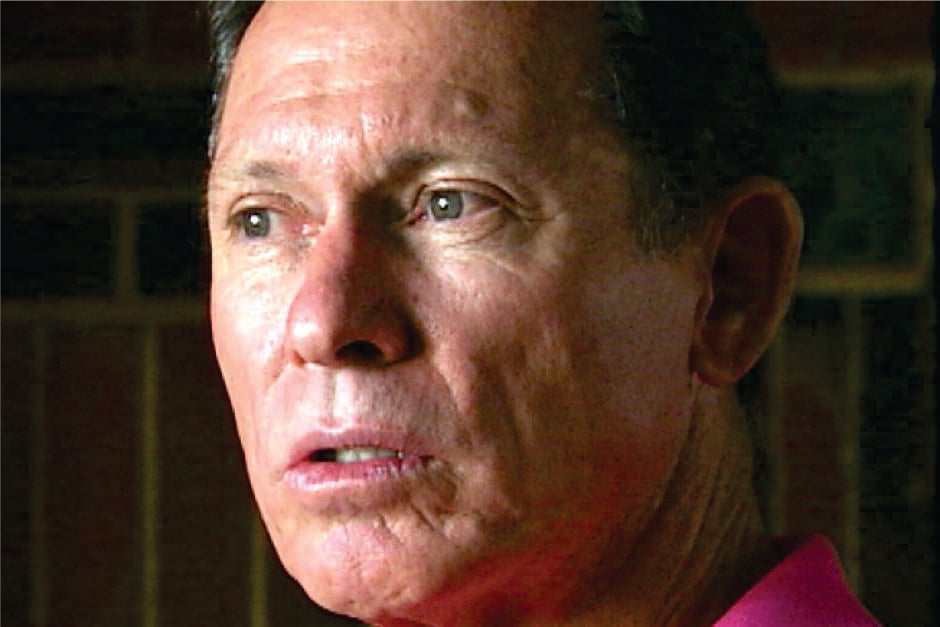By Pelu Awofeso
Tourism in Nigeria has stagnated for as long as I can remember. In the last few decades every new government has promised (but failed) to breathe life into the sector, even when it is clear that tourism is a key driver of many economies in Africa and around the world. Annual budgets for the Ministry of Culture, Tourism and National Orientation have clearly not improved the situation. As a result, what ought to be a multiple, even if seasonal, revenue generating industry for the state and federal governments, and a failsafe source of empowerment for Nigeria’s unemployed body of youths is in dire straits. Year in and year out, government officials tend to focus on the big picture, when in actual fact the solution lies in small steps; so here, in commemoration of the World Tourism day on September 27, I propose 10 simple (and practical) steps Nigeria can take to ‘spark up’ the ‘sickly’ tourism sector.
1.’Think local’ for starters: Granted, tourism is driven by the private sector (the active local hospitality industry is clear proof of that) but there is a lot the government needs to do and that is to invest more to restore and maintain the hundreds of national monuments and landmarks around the country. When this happens, Nigerians will take more interest in these attractions and be more disposed to visiting same without any reservations, which is currently the case. Nigerians surely love good home-grown stuff. Look at the music and movie industries. The average Nigerian on trips overseas would rather go in search of local foods than anything else.
2. Slash foreign trips: For a long time, federal and state officials have had the mistaken belief that all of the problems afflicting Nigeria’s tourism can (and will) be solved with a ‘magic wand’ of foreign trips. They feel once they see how things are done abroad, they can return to Nigeria and then go right ahead to transplant the formula on home soil and all shall be well. So they go to every international travel show with the added officialese of “seeking foreign investors”. Investors have other means of finding out where to invest, thank you very much. They don’t need sweet-talking government officials, except of course, they want to do some underhand deals. So, junk the jamboree and create the enabling environment and investors will flock.
Advertisement
3. Identify Nigeria’s holiday capitals: Lagos has had the longstanding reputation of being Nigeria’s commercial capital; and Abuja, by virtue of the Three Arms Zone, is the country’s administrative capital. That’s business and governance, which can be described as ‘work’, taken care of. In the same vein, we need de-facto cities in the six regions of Nigeria to be named our country’s ‘holiday capitals’, our playground, so to speak. The cities to be so named will combine physical beauty with ease of access and will require the federal government partnering with the state governments to develop hospitality and leisure facilities to the point where Nigerians can see them as their getaway destinations, places of refuge. Create incentives for the private sector to also throw in their investible cash. In no particular order, my six recommendations are: Osogbo (south-west), Enugu (south-east), Uyo (south-south), Jos (north-central), Katsina (north-west), and Yola (north-east).
4. Stimulate beach economy: By virtue of the Atlantic Ocean, Nigeria has hundreds of kilometres of coastline, which stretch into beaches. Sadly, those beaches are packed with filth and some are even environmentally hazardous owing to shipwrecks. Take a trip to Ghana and see how they have turned beaches into playgrounds and revenue yielders. A Nigerian arrived from London recently after several years of sojourn and headed for Bar Beach on Victoria Island. He almost fainted at what he saw. Nigeria’s domestic tourism will get a significant lift if we can ensure more attractive stretch of beachfront.
Nigerians love the outdoors and beach outings are common leisure pursuits. With the beaches cleaned up, Nigerians would flock there, not only during festive periods but also to relax, and everything connected with “beach economy” — beach wears, picnic stuff, photography, etc. will grow. The West has fashioned the bikini as a standard beach wear. To a reasonable extent, South America and the Caribbean Islands also have homegrown substitutes. A subtle way to promote the Nigerian brand identity (among other options) is to create a variety of outfits suitable for beach outings, something other than bikinis, t-shits and three-quarter shorts. And I see a great deal of potential for this in our brilliant variety of indigenous fabrics.
Advertisement
5. Raise and Train tour guides: At the last count, I have travelled to 30 states in Nigeria and in the process visited countless tourist attractions. Except for the self-empowered guides I have met in Badagry, at nowhere else on my trips — – from Abeokuta to Bauchi and to Yenagoa — have I been shown around by independent local tourist guides. They have often been civil servants attached to the various state tourism boards and agencies. But the simple truth is that every Nigerian school leaver or graduate can be trained over a short period to be a tour guide and then assigned (or attached) to any of the tourist attractions in the country. What tourist guides need is a level of enterprise and thorough knowledge of the locality they are based in, and they are empowered for life.
6. Publish guidebooks: I was part of a team that researched and produced a standard tourist guide for Lagos state, which will soon be in circulation. It’s a handy companion for tourists; to decide for themselves where they’d love to visit while in the city. This is a good move but I dare say that there is need for more like this across the states, and the earlier governments realise this, the better the prospects for domestic tourism. Tourists need guidebooks when they plan or decide to visit a country new to them. They need to know everything from its geography to its ground rules; they need to know what’s hip and what is forbidden. But except for the uninspiring brochures issued by governments at all levels, Nigeria hardly has any guidebook in circulation now (NB: I have published three travel books to date, all of them self-funded). So every prospective visitor to the country depends mainly on the established guidebooks published overseas (The Rough Guide, Lonely Planet, Bradt, etc.).
7. Embrace Social Media: Countries serious about promoting their local tourism assets have identified that social media platforms are key to their marketing and promotions agendas. While Nigerians constitute the largest number of people online in Africa, Nigeria’s tourism promoters have not embraced this trend as yet, when many countries have done very well in this regard. There are many tourism promotion sites and blogs managed by Nigerians already; it will be great to have the government agencies liaise with them to take make the country’s tourism work.
8. Encourage Adventure Travel: This is best handled by either the private investors or local government councils. I was 24 and a corps member in Plateau state when I started to travel around Nigeria. First, I visited Gombe and then Borno state, where I spent roughly a week apiece; I have never forgotten my experiences in those states and I still long to return. I continue to travel within the country nearly two decades on, howbeit professionally. With Nigeria’s immense youthful population, the country’s lovely landscape ought to be an attraction to youths in their 20s and 30s keen on adventure travel. And I dare say that the NYSC year is an excellent ‘gap year’ for Nigerian youths to explore neighbouring cities, towns in the states they have been posted to serve.
Advertisement
9. Build budget hotels: To encourage the younger generation to travel extensively within the country means that cheap accommodation and hostels must be sufficient to cater to this demand. Also, when the masses travel, their hospitality requirements differ from the preferences business travellers, who prefer to lodge in exquisite hotels. Nigeria needs a lot more budget hotels for its leisure and adventure travellers; same for middle-class families going on vacation.
10. Produce short documentaries: Destination-specific documentaries will do a lot to boost tourism appreciation in and outside Nigeria — by locals and foreigners alike. There are a couple of attempts on television by individuals and private enterprises at the moment; but commendable as they are, collectively they have not even scratched the surface as yet. To stand a chance of going viral (today’s term for ‘widely watched’), the documentaries should be packaged in the format of the musical videos (short running times and catchy visuals). And in keeping with the current trends, these documentaries will travel farthest if they are published online and in versions compatible with mobile phones, where they can be shared easily.
Advertisement






